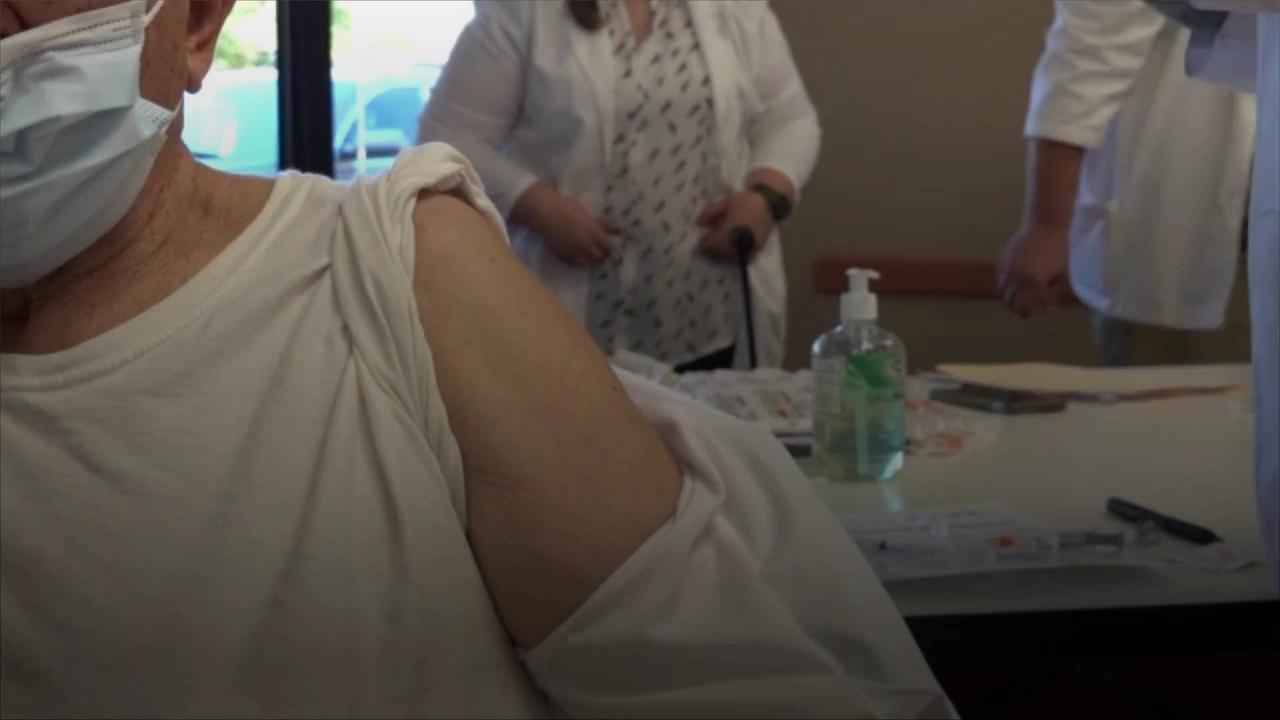
FDA Weighs Authorization , of Second Round of , COVID Boosters for Some People.
The United States Food and Drug Administration (FDA) is planning an annual COVID booster campaign starting this fall.
NPR reports that the new round of boosters will be updated to combat whatever variant is expected to circulate in the following winter.
Currently, the FDA has only authorized one booster of the latest bivalent vaccines.
.
However, NPR reports that the FDA is reconsidering its stance and weighing the authorization of a second bivalent booster for some people.
According to an anonymous federal official, those being considered for a second booster include people with compromised immune systems or who are 65 and older.
Those doses are going to be expiring and will be thrown out.
So it makes sense to have those shots in arms instead of being tossed in the waste basket, Dr. Peter Hotez, co-director of the Texas Children's Hospital Center for Vaccine Development and dean of the National School of Tropical Medicine at Baylor College of Medicine, via NPR.
Historically, when you look at the monovalent vaccines, the protection starts to wane after four or five months.
We don't know if that's the case with bivalent booster.
But you don't want to find out the hard way, Dr. Peter Hotez, co-director of the Texas Children's Hospital Center for Vaccine Development and dean of the National School of Tropical Medicine at Baylor College of Medicine, via NPR.
Historically, when you look at the monovalent vaccines, the protection starts to wane after four or five months.
We don't know if that's the case with bivalent booster.
But you don't want to find out the hard way, Dr. Peter Hotez, co-director of the Texas Children's Hospital Center for Vaccine Development and dean of the National School of Tropical Medicine at Baylor College of Medicine, via NPR.
NPR reports that opponents of the second round of boosters say there is not enough evidence to show that protection has significantly faded.
I have no data to show me that a second bivalent is safe and effective.
I have every reason to think it might be.
But I don't actually have data, Dr. Gregory Poland, director of the Mayo Clinic's Vaccine Research Group, via NPR.
I have no data to show me that a second bivalent is safe and effective.
I have every reason to think it might be.
But I don't actually have data, Dr. Gregory Poland, director of the Mayo Clinic's Vaccine Research Group, via NPR.
NPR reports that there is also a chance that the shots could have an opposite effect, as the bivalent boosters target an old strain that has since been replaced.
